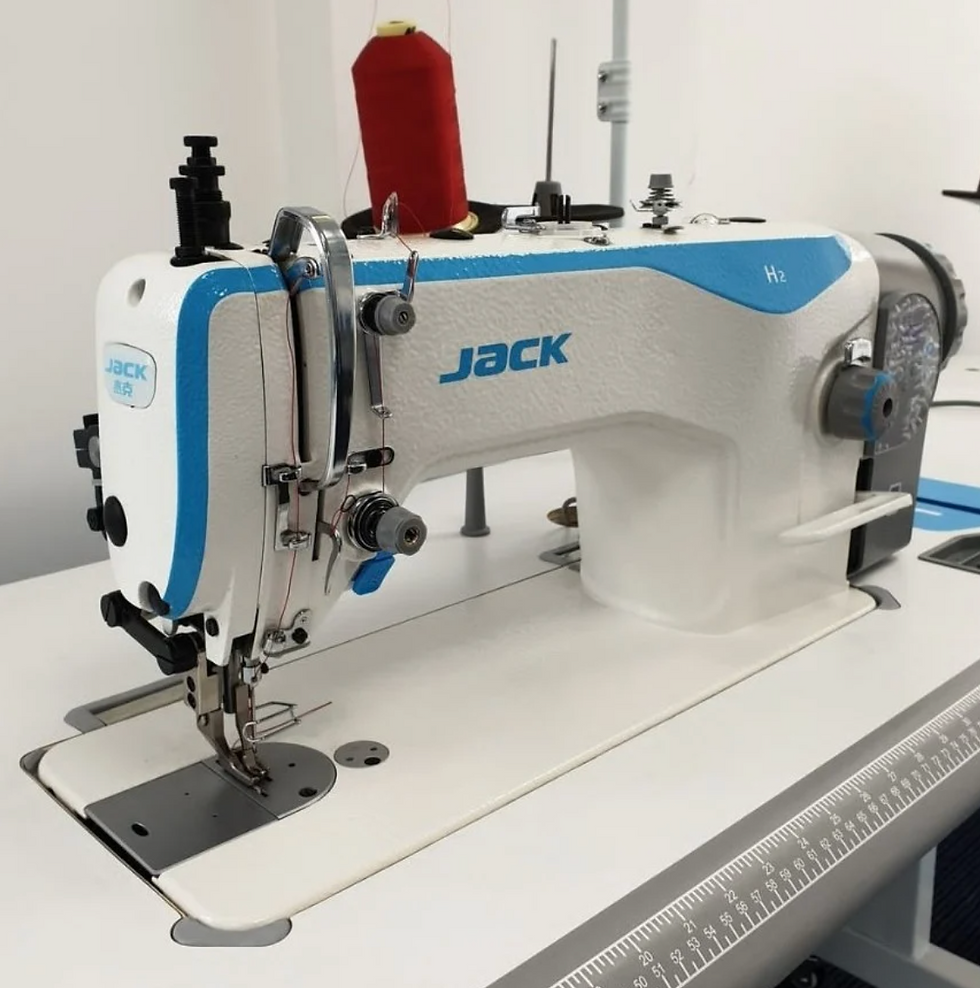Do I Need an Industrial Sewing Machine?
- Sep 28, 2023
- 3 min read
Do you have a domestic sewing machine already? Do you want to know if you need an industrial sewing machine?
This guide should help you decide

When starting a small sewing business, choosing between a domestic sewing machine and an industrial sewing machine is an important decision that will significantly impact your productivity, the quality of your work, and the types of projects you can undertake.
Here are the key differences between the two:
What will you use your sewing machine for?
Domestic Sewing Machine: Domestic machines are designed for general household sewing tasks such as mending clothes, crafting, and making simple garments. They are versatile but not built for heavy or continuous use.
Industrial Sewing Machine: Industrial machines are specifically engineered for heavy-duty, high-speed sewing tasks. They are designed to handle large volumes of work and are well-suited for commercial production.
How fast do you need to sew?
Domestic Sewing Machine: Domestic machines are generally slower compared to industrial machines. They are suitable for occasional sewing projects.
Industrial Sewing Machine: Industrial machines are built for speed and can sew much faster than domestic machines. This is essential for production environments.
Durability and Construction
Domestic Sewing Machine: Domestic machines are made with lighter materials and may have some plastic components. They are not as robust as industrial machines and may wear out faster with heavy use.
Industrial Sewing Machine: Industrial sewing machines are constructed with heavy-duty materials, including metal frames and parts. They are designed for continuous use and can withstand years of heavy sewing.
Stitching Capabilities
Domestic Sewing Machine: Domestic machines offer a wide range of stitch options for decorative and utility purposes, making them versatile for various sewing projects.
Industrial Sewing Machine: Industrial machines are specialised for specific types of stitches, depending on their intended use. They excel at straight stitching, zigzag stitching, overlocking, and other precise, production-oriented stitches. You can use thicker threads and even stronger threads. An industrial machine will also do larger stitches.
Workspace
Domestic Sewing Machine: Domestic machines have a smaller workspace, limiting the space available for manoeuvering larger fabrics or multiple layers of fabric.
Industrial Sewing Machine: Industrial machines come with larger workspaces, which are essential for handling bulky fabrics or working on larger projects.
Noise Level
Domestic machines are quiet and Industrial sewing machines with a servo motor or direct drive are also very quiet.
Industrial sewing machines that are older that generally have a clutch motor are noisy as the motor is constantly running.
Maintenance
Domestic Sewing Machine: Domestic machines are usually easier to maintain and repair. They may not require as frequent servicing.
Industrial Sewing Machine: Industrial machines, due to their heavy-duty nature, often require more regular maintenance. We teach you how to do this so its nothing to worry about.
In summary, if you are thinking of starting a sewing business and it involves projects with a high volume of work, heavy fabrics, and a need for speed and precision, investing in an industrial sewing machine is advisable. This can also be used at home, they have a 13amp plug and only need approximately 1.2m x 0.5m of room to place the machine table.
However, if your business primarily involves occasional sewing tasks and versatility is more important than speed, a domestic sewing machine may be enough.
Your choice should align with your specific business needs and budget.
